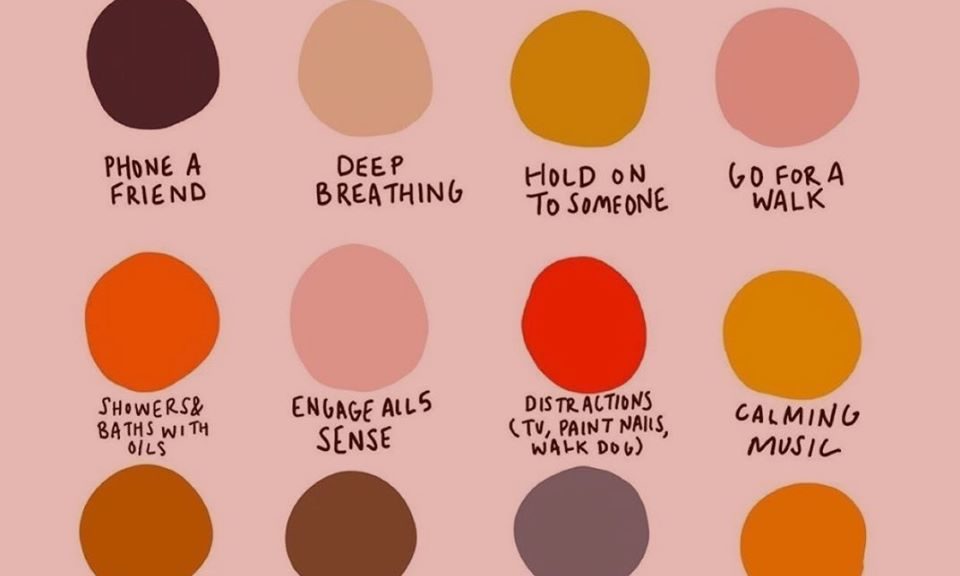
What is Anxiety
We hear the word “anxiety” thrown around a lot these days. We have all described ourselves as feeling “anxious” at one stage or another – whether it’s linked to a feeling of dread about an upcoming event, or associated with the stress or pressures of the workplace, or related to a particular issue in a relationship. And it’s natural and normal that we feel anxiety in particular situations – but what about when it goes above and beyond what the situation calls for?
This is what is known as clinical anxiety, and it can be very distressing and debilitating.
Anxiety disorders, which include generalised anxiety disorder, social anxiety disorder, panic disorder, and specific phobias, are the most prevalent mental health disorders in the world and are associated with immense health care costs and a high burden of disease.
So what happens to our brains when we experience anxiety? Why do we experience anxiety? And what can we do to manage our anxiety?

Neuroscience & Evolution
Anxiety is the natural reaction that occurs in our brains and bodies to a situation that may be threatening or dangerous. In these situations, key areas of the brain send out signals in the form hormones, such as adrenaline and cortisol, to other areas in the body, in order to keep us physiologically alert. Physiological changes that occur as a result of these brain signals include increased breathing rate, heart rate, and pulse rate, in order to pump blood and oxygen to important organs in the body.
As mentioned earlier, it is natural – and potentially life-saving – to experience symptoms of anxiety in certain situations, as it may help us to evade harm or danger. We evolved to be able to sense situations that may be threatening and to send the appropriate warning signals. This is known as the “Fight or Flight” response, and it is generally important to listen to our brains and bodies when a situation feels threatening.
However, for those who suffer from chronic and debilitating anxiety, they experience this natural reaction either to an extreme and disproportionate point or else in situations that aren’t dangerous and therefore don’t warrant such a reaction. People who experience excessive anxiety can face many worries and negative thoughts, as well as distressing physical symptoms such as sweating, fast heart rate, and difficulty breathing.
Experiencing such anxiety can have a detrimental effect on both physical and mental health.

Combatting Anxiety
If you feel that you experience excessive or disproportionate levels of anxiety (i.e., feeling anxious all of the time, without any particular reason, to the point of debilitation), the most important thing would be to speak to a doctor or mental health professional. If you feel that you are just a little bit more predisposed to anxiety than you would like, there are a few things that you can do to help decrease these sensations:
- Breathe. Deep abdominal breathing can lower cortisol levels and help us to feel more relaxed
- Meditate. Engaging in meditation has not only been shown to improve attention, concentration, and well-being, it has also been shown to result in a reduction in the size of the amygdala, one of the key regions in the brain involved in anxiety and stress
- Exercise. Whether it’s hardcore exercise, a brisk walk, or gentle yoga, exercise will stimulate the production of feel-good chemicals, and it will also encourage deep breathing, which lowers our stress hormone levels
- Engage. Talking with friends, family members, or trusted confidants can help to reduce some of our anxieties. Furthermore, engaging in social activities has hugely beneficial effects on both physical and mental health. Anxiety can make us want to withdraw and avoid certain situations – but avoidance usually just increases anxiety in the long-term. Push yourself to engage with others, and you will be rewarded
- Use ice. If you feel like your anxiety is really getting out of control, you can try this strategy to calm yourself down – fill a bowl of water and ice, and put your face in the bowl, until you feel your anxiety reducing (remembering to come up to breathe). If you are unable to do this, placing an icepack on your forehead will achieve a similar result. This is something that you can try if you are experiencing a one-off, acute episode of anxiety that you are finding hard to control; however, if you feel this way regularly, it would then be important to seek professional advice or help

One thought on “What is Anxiety”
jazakallah for this as most people think those with anxiety have depression but there are so many types and we need to support one another rather than point